Resist Reactionary Boycottism
If this Bud's for you, it apparently can't also be for me
Jesse Kelly, the right-wing national divorce accelerationist who once publicly fantasized about literally scalping his political opponents, recently discovered that Coors sometimes promotes its alcoholic products to LGBT people.
This was especially devastating to Kelly, since it came on the heels of Bud Light also revealing itself to be ensared by the same pernicious ideology of wanting to sell more alcoholic beverages, which is apparently why it partnered with trans TikTok personality Dylan Mulvaney for a social media push and a commemorative can.
However, in Kelly’s fevered imagination, this was Molson Coors and Anheuser-Busch—the parent companies for Coors and Bud Light, respectively—fomenting a woke gender revolution.
Now, Mulvaney is a complete weirdo, but stopping there and going no further is apparently not possible for Kelly—he has to go beyond that and see in this marketing strategy the very undoing of the American project.
After he noticed that Coors has also been marketed to young adults and LGBT people, it led to an exasperated sigh. This is why Kelly half-jokingly suggested that he now has to do an hour of research before purchasing beer.
Sarcasm aside, why does he feel he has to do this?
MAGA voters and left-leaning LGBT people both like to drink beer, but because the two are at enmity with each other, we ought to conclude that these beer companies are completely captured by progressive zealotry if they try to pitch their drinks to both camps?
Kelly should just feel free to buy whatever products he enjoys rather than subordinate his consumption habits to identitarian considerations that have nothing to do with the quality of the products themselves.
I’m not just saying this to Kelly. This is as true for the anti-Bud Light/anti-Coors sentiment on display here as it is for the anti-Chick-fil-A sentiment of yesteryear.
But it’s a message that is especially salient for Kelly, who belongs to a crowd that tends to loudly decry the politicization of all things. All of a sudden, these people can’t operate a grocery list without first checking LinkedIn to see if companies that make the products they like have DEI officers on the payroll or whatever.
My counterproposal is that they should just live their lives.
They must feel they can’t, though, unless they first cleanse their pantries and refrigerators of lib-infected products. This is why antivax fanatic and antiwoke sportscaster Clay Travis came to Kelly’s defense with Gratis, a beer that is somehow able to come across as highly patriotic despite promising never to be pitched to the subset of Americans who are trans.
It’s not just beer, of course.
Pillows, too, are partisan now.
Sorry, I couldn’t resist mocking Ryan Fournier’s transparently silly grifting technique.
The delightful folks over at The Daily Wire have also been racking their brains for ways to capitalize on the very outrage they help stoke over innocuous branding decisions taken by megacorporations. They’ve released right-wing razors to compete with Harry’s, and trans-agenda-resistant chocolate bars to compete with Hershey’s—not to compete with them, I should say, but to corner the anti-lib market.
It’s a beautiful business model: whip up a furor over a perceived cultural attack, and once the audience is sufficiently panicked, lure them in with ideologically-comforting replacement products.
It is perhaps fitting that we would see, in a hyperpolarized age, marketing gimmicks dressed in the guise of responsible civic duty yet calibrated to exert maximal ideological pressure—e.g., “take money away from woke capital and give it to corporations that don't hate you!”
I’m avowedly pro-capitalism, but the commodification of ideological dissent is one of capitalism’s most disquieting flexes. Scores of people convinced that purchasing their razors from Ben Shapiro rather than from Harry’s is some sort of powerful salvo in the grand battle between good and evil.
The overriding psychological importance of our intensely held ideological identities renders them powerfully exploitable by savvy marketing techniques toward suboptimal consumer outcomes: prioritizing political affinity above product quality to own the libs!
Clay Travis is up-front about the amazing financial opportunity that our balkanized media ecosystem now affords:
The reason there is “tons of space” for gimmick products like this is because people like Travis have discovered they can use the culture war for lucrative gains. There is no entrepreneurial interest in making a superior product; the gameplan here is monetizing anti-lib animus.
By exerting ideological pressure they can effectively funnel their audience’s money away from other brands and into their own pockets—not because the products are superior qua products, but because they’re being offered by political allies.
That’s the pitch for Travis’s “antiwoke” beer: “our beer isn't perfect” is an admission of inferior quality, or at the very least a tacit acknowledgment that quality isn’t what ought to be driving your purchasing decisions. Instead, Gratis’s supposed value-add is that it won’t be marketed to communities at odds with MAGAism.
The big losers here are their audiences, who are pressured to purchase suboptimal products in order to provide dimwits with extra revenue.
It’s not just about products, though. Everything gets swept up into this mode of thinking. Here is a tweet from someone who ordinarily bemoans the penetration of politics into inherently non-political spaces.
He can’t even share an Easter message without infusing it with a lib dunk.
It seems the people most triggered by our hyperpoliticized age are the ones most willing to organize their lives around culture war inanities. When Easter Sunday, the centerpiece of a Christian’s faith, gets swallowed up into one’s broader trolling operation against liberals and progressives, it’s time to reassess.
I have the audacious view—in concert with the pre-internet folkways of seeing most boycotts as the province of weirdo extremists—that our consumption habits shouldn’t have to be run through a political purity filter first. But even beyond individual purchasing decisions, we should resist the sort of omnipoliticization society tries so hard to impose on us.
Someone asked me: ‘Okay, so when would it be all right to boycott?’ This is an excellent question, but it’s largely person-variable. By all means, if you’ve given a particular issue lots of thought and you’re judiciously applying financial pressure for a genuinely critical end, boycott away. But if I were setting the dials for everyone, I’d look to establish norms that reduce culture war dynamics from colonizing our lives even more than they already have.
Resist the cultural expansion of reactionary boycott-ism and just live your lives.


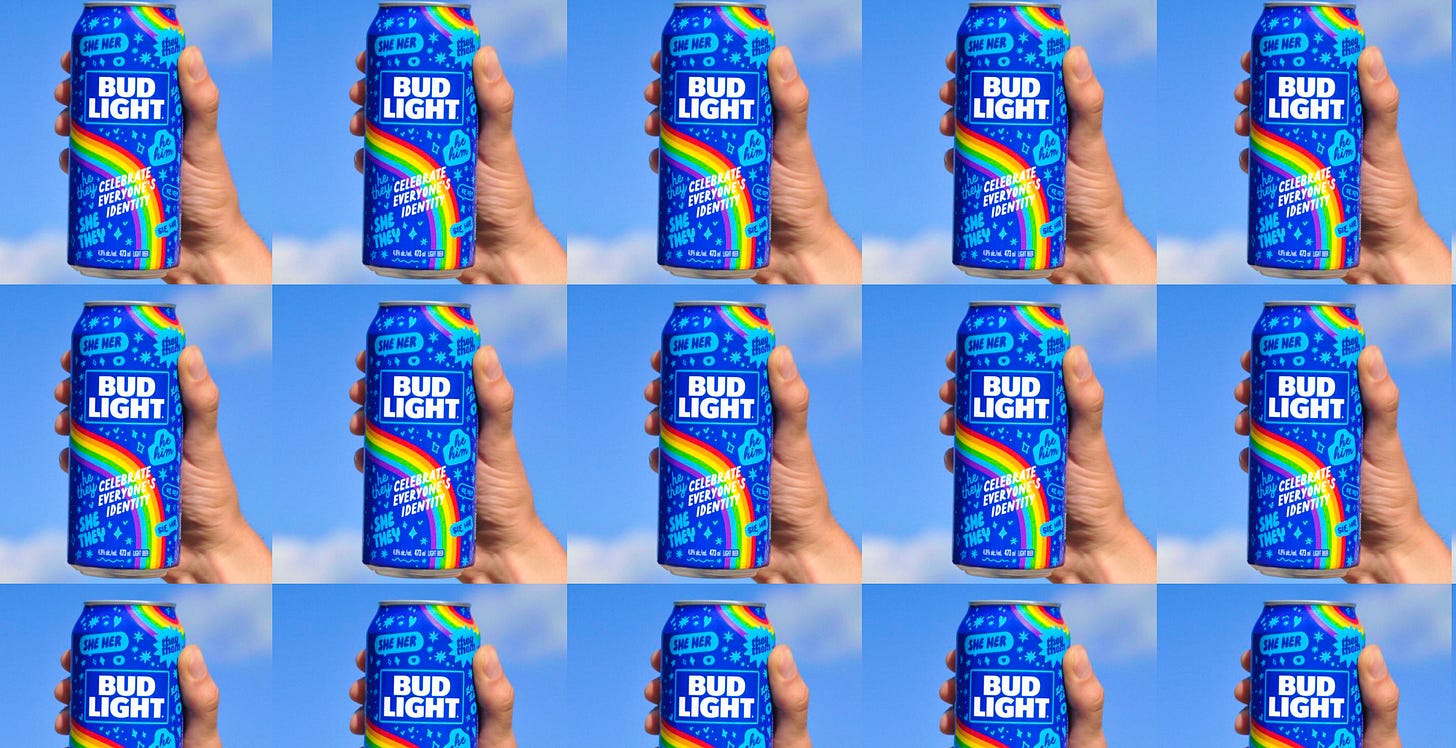
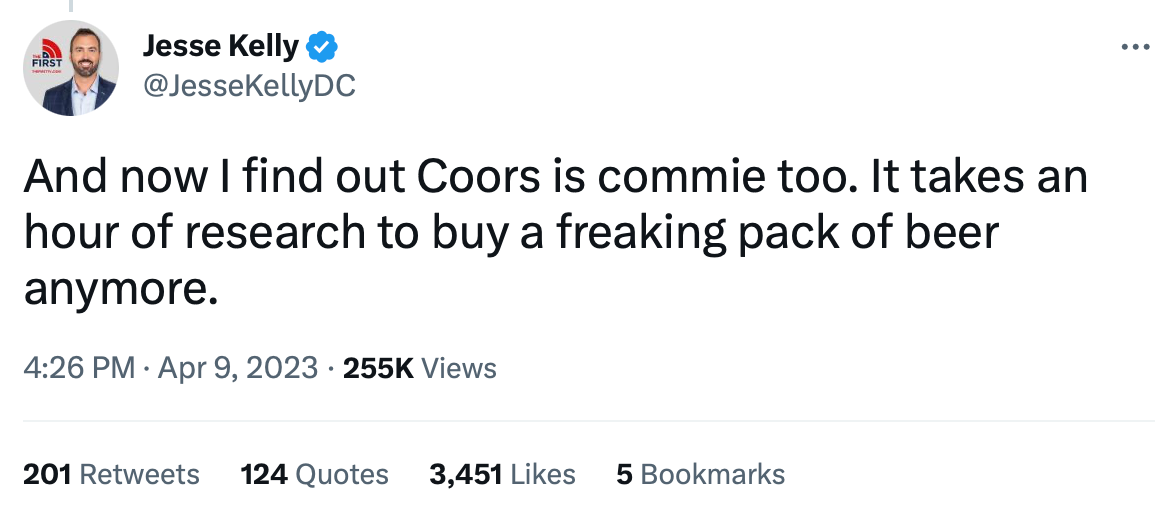
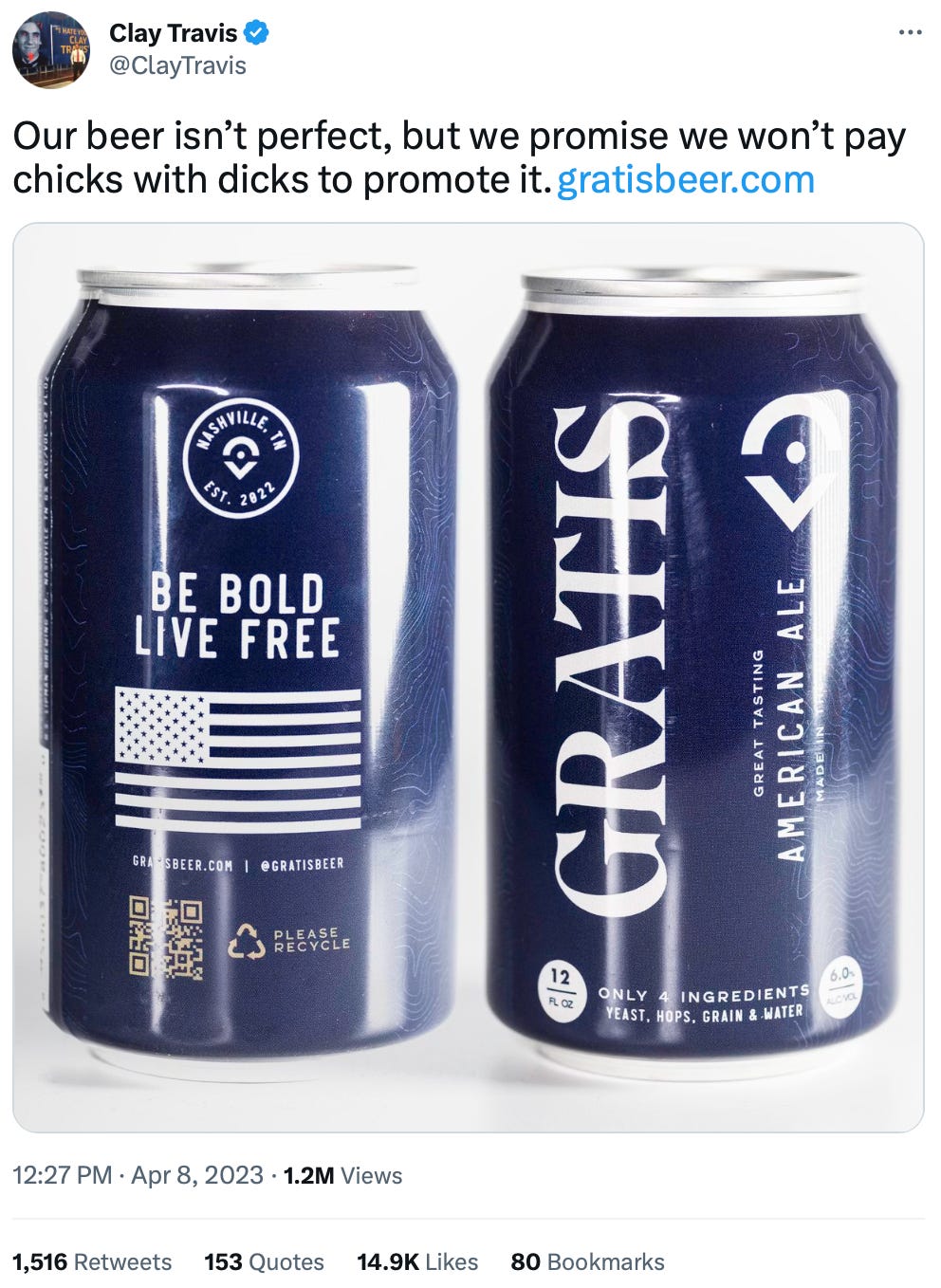

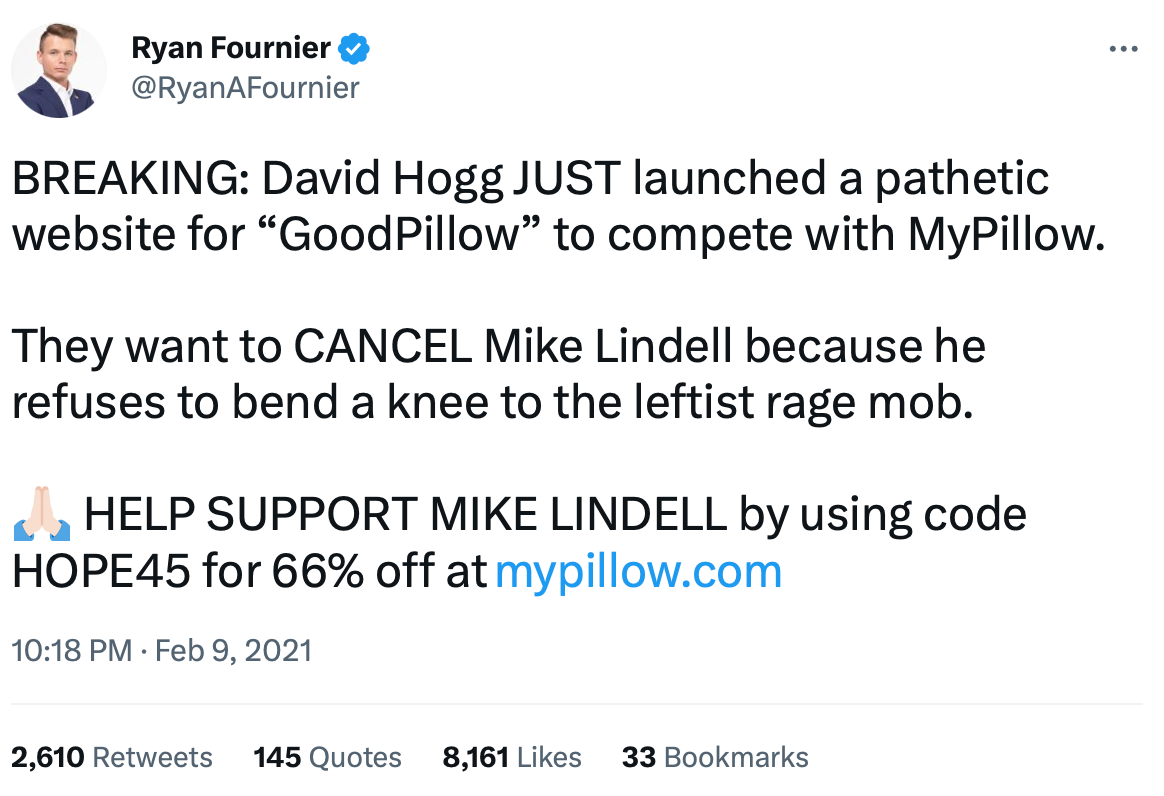
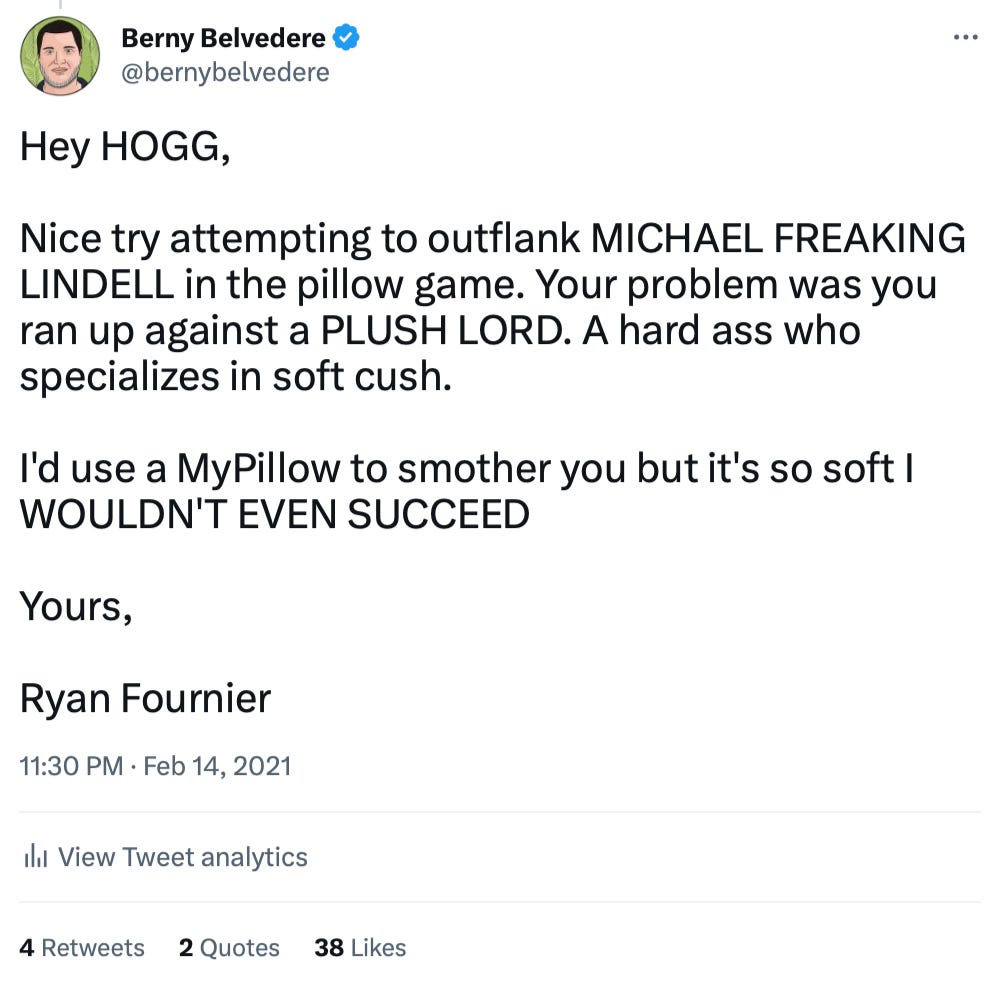
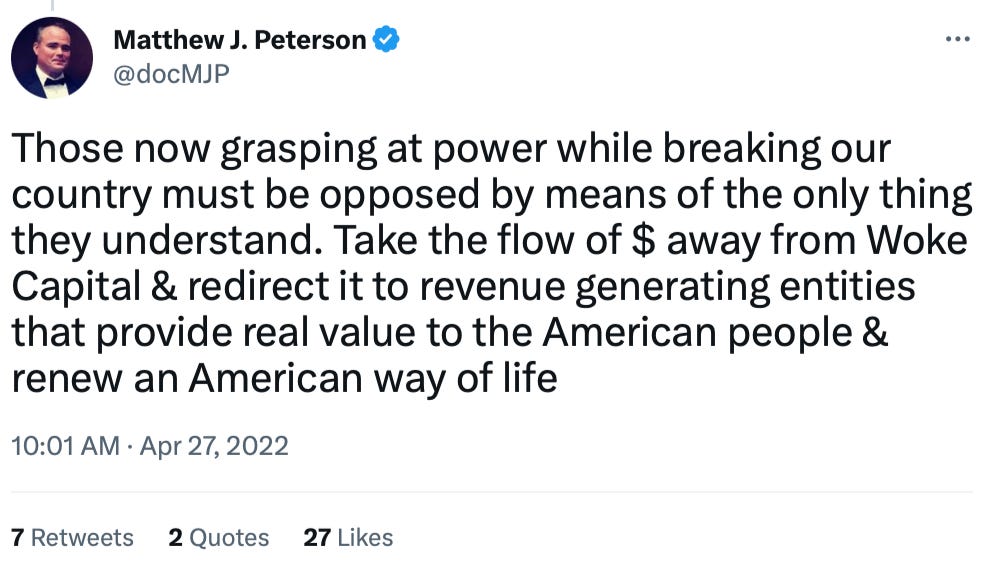
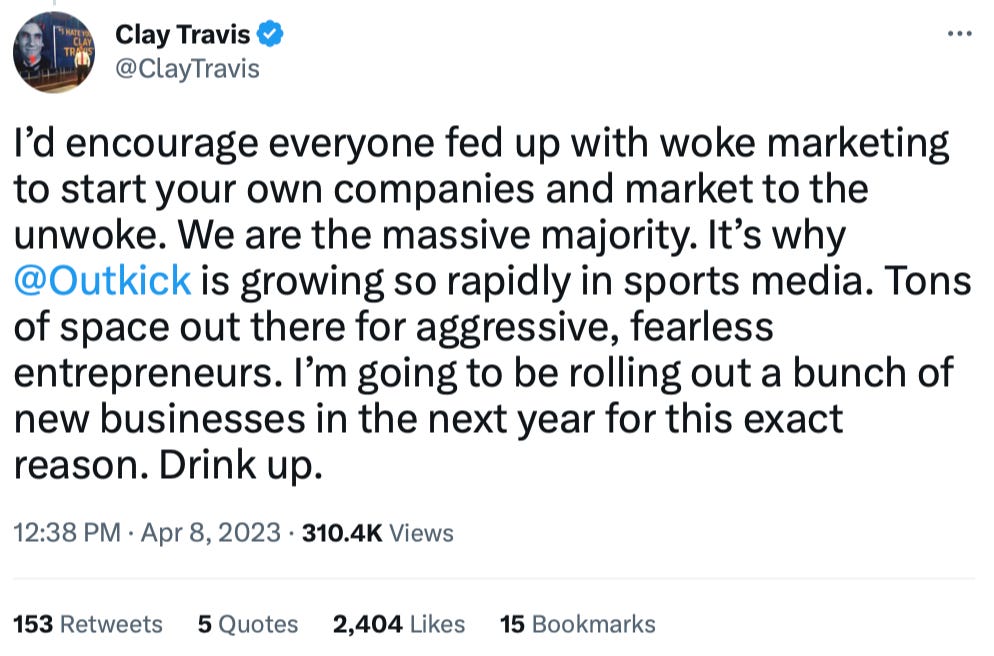

As a gay man I find it just a bit trite and a major disappointment that brands attempt such lazy pandering in packaging and tie-ins to cover for their actual corporate sins. I guess we in the industry would call it pink washing. Like rainbow Raytheon branded tube socks, a free Verizon frisbee at pride, and a rainbow Twitter profile picture that doesn’t apply in all regions.
It all just rings a certain way, and it doesn’t make me any more charitable to corporate America. If anything it makes me see them as craven opportunists willing to “die on the hill” of a cultural issue, to run interference for their history of anti-worker and anti-consumer/anti-competitive behaviors.
It's a substitute for actual activism and its only effect is to divide us as a people. I'd love to see an obviously trans person drinking Gratis on tik-tok. Would they right-wing warriors lose their minds?